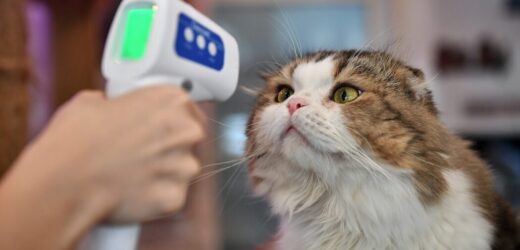In the spring of 2020, as the novel coronavirus infiltrated the Twin Cities, Hinh Ly could not stop thinking about cats and dogs.
Dr. Ly, a veterinary and biomedical researcher at the University of Minnesota, knew that humans were the primary driver of the pandemic. But he also knew that many people loved to kiss and cuddle their pets, in sickness and in health. He wondered: How transmissible was SARS-CoV-2 to humankind’s best friends?
In March of 2020, Dr. Ly learned that two dogs in Hong Kong had received positive P.C.R. tests for the virus. But these tests require the virus to be actively replicating and thus only reveal active infections. Swabbing the snouts of many pets struck Dr. Ly as an overly time-consuming way to figure out how easily the animals could be infected.
So he pitched an idea to his wife, Yuying Liang, a researcher in the same department who leads the lab with him, to test cats and dogs for antibodies, which would reveal past infection to the virus. “I had the idea, but she is the boss,” Dr. Ly said.
The result of those antibody tests, published recently in the journal Virulence, suggest that household cats are more susceptible than dogs to a SARS-CoV-2 infection.
Fortunately, infected cats appear to show mild symptoms at most. “I am still a bit surprised that cats are so readily infected and yet rarely exhibit any signs of illness,” said Dr. Angela Bosco-Lauth, a biomedical researcher at Colorado State University’s College of Veterinary Medicine and Biomedical Sciences who was not involved with the research.
And there is still no evidence to suggest infected cats or dogs are a risk to people, said Dr. Jonathan Runstadler, a virologist at the Cummings School of Veterinary Medicine at Tufts University who has studied how the coronavirus affects animals but was not involved in the new work.
The new study supports recent research that it may be “fairly common” in households where people test positive for SARS-CoV-2 for cats and dogs to become infected, too, Dr. Runstadler said.
To test for pet antibodies, the Minnesota researchers needed the animals’ serum, the component of blood that contains antibodies. Dr. Ly reached out to Dr. Daniel Heinrich, director of the clinical pathology lab at the university’s veterinary center. (Dr. Henrich is also an author on the new study.) Pets passed through the center daily and had their blood tested for myriad reasons, including “annual checkups, unrelated disease, peeing inappropriately on the wall,” Dr. Ly said.
Those samples are usually discarded. But Dr. Heinrich asked pet owners to allow the serum to be used anonymously in the study, and the researchers got their first handful of samples in April.
The researchers initially screened roughly 100 samples, and found that about 5 percent of the cat serum contained coronavirus antibodies, whereas almost none of the dog serum did. To be safe, Dr. Ly tested hundreds more samples, drawing from blood collected in April, May and June, as Covid cases were rising in the region.
In the end, the scientists found that 8 percent of cats carried antibodies to the coronavirus, whereas less than 1 percent of dogs did, suggesting that cats were more susceptible to infection.
Because the pet owners granted consent anonymously, the researchers were unable to trace which humans might have transmitted the virus to the various cats and dogs. It was also unclear whether the infected pet cats lived indoors or outdoors, or how transmissible the virus was from cat to cat, Dr. Ly said.
The researchers do not know why cats seem to be more susceptible than dogs. One possibility relates to ACE2, a protein on the surface of cells that is a receptor for the coronavirus. The genetic sequence of the human ACE2 protein is much more similar to the equivalent sequence in cats than in dogs.
But animal behavior could be a factor as well. A recent study that presented similar findings — that cats become infected by the coronavirus more readily than dogs — noted that cats are often more welcome to sleep on beds than dogs are. “Maybe it is because we cuddle the cats more,” Dr. Ly speculated. “Maybe we kiss the cats more.”
Dr. Bosco-Lauth said she believes that pets are “unlikely to contribute to the epidemiology of SARS-COV-2 in the long run.” But there’s still no way to know for sure.
For those people who test positive for Covid-19, Dr. Ly recommended distancing from not only humans, but cats and dogs. “You cannot cuddle them,” he said.
Dr. Ly and Dr. Liang do not have cats or dogs in their own home. They do have a tank of guppies, which appear, for the moment, to be quite safe from the coronavirus.
Source: Read Full Article


